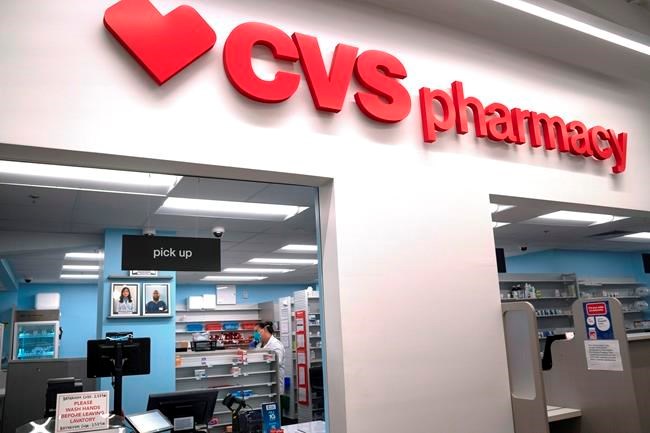WASHINGTON — President Joe Biden’s administration announced Tuesday that it is moving to expand access to COVID-19 vaccines, freeing up more doses for states and beginning to distribute them to retail pharmacies next week. The push comes amid new urgency to speed vaccinations to prevent the spread of potentially more serious strains of the virus that has killed more than 445,000 Americans.
Starting next week, 1 million doses will be distributed to some 6,500 pharmacies across the country, the White House said. The administration is also boosting by 500,000 the weekly allocation of vaccines sent directly to states and territories for the coming weeks, up to 10.5 million. It is allowing state and local governments to receive additional federal dollars to cover previously incurred expenses relating to the pandemic.
Coronavirus
Drugstores have become a mainstay for flu shots and shingles vaccines, and the industry is capable of vaccinating tens of millions of people monthly. “This will provide more sites for people to get vaccinated in their communities,” Zients said.
“This is a critical step to provide the public with convenient trusted places to get vaccinated in their communities," he added.
The number of participating pharmacies and the allocation of vaccines are expected to accelerate as drug makers increase production. The White House said the ultimate goal was to distribute the vaccines through more than 40,000 pharmacies nationwide. State and local guidelines will determine who is eligible to get a shot at their
“Getting it into pharmacies is a viable approach,” said Dan Mendelson, founder of the health care industry consulting firm Avalere Health. “The pharmacies know how to move people in and out.”
Part of the reason the vaccination campaign got off to a slow start, he added, is that states lacked their own infrastructure for mass vaccinations.
The partnership with drugstores was originally announced by the Trump administration in November. At that time, no coronavirus vaccines had been approved. Participating are major chains like CVS, Walgreens and Rite Aid, big box stores such as Walmart and Costco, and supermarket pharmacies. CVS said it will receive 250,000 doses initially, to be distributed to pharmacies in 11 states.
The pharmacy doses will be distributed to states by population, but a priority will be to get the vaccine to minority communities that have suffered a disproportionately high toll of disease and deaths from the virus, Zients said.
He said the Centers for Disease Control and Prevention was “making sure that we are picking pharmacies in that first phase that are located in areas that are harder to reach to ensure that we have equitable distribution of the pharmacy doses.” Walgreens said it was selected in part to “optimize vaccine access in medically underserved areas.”
The 1 million doses being shipped to pharmacies will be on top of the increased allotments to states over the coming three weeks. The Biden administration has sought to increase certainty to state governments on their upcoming allocations to streamline deliveries and prevent stockpiling of second doses for the two-dose regimens.
The Tuesday announcement comes a day after Dr. Anthony Fauci, the government's top infectious-disease expert, called on Americans to get vaccinated as soon as they're eligible to prevent further mutations of the virus. The U.S. is tracking the spread of potentially more virulent and treatment-resistant variants.
“Viruses cannot mutate if they don’t replicate," Fauci said. "And if you stop their replication by vaccinating widely and not giving the virus an open playing field to continue to respond to the pressures that you put on it, you will not get mutations.”
The U.S. government has already starting working with vaccine manufacturers on potential booster shots to enhance protection against the variants.
Biden's move to allow for an additional $3 billion to $5 billion in retroactive funding to state and local governments for reimbursement of pandemic-related spending was expected to free up more money for vaccine distribution.
“States will be fully repaid for things like masks, gloves and the mobilization of the National Guard, and they can use the additional resources for vaccination efforts and emergency supplies moving forward,” Zients said.
That is on top of additional assistance to state and local governments from the Federal Emergency Management Agency already authorized by the Biden administration for them to stand up and support vaccination sites across the country.
Ricardo Alonso-Zaldivar And Zeke Miller, The Associated Press



